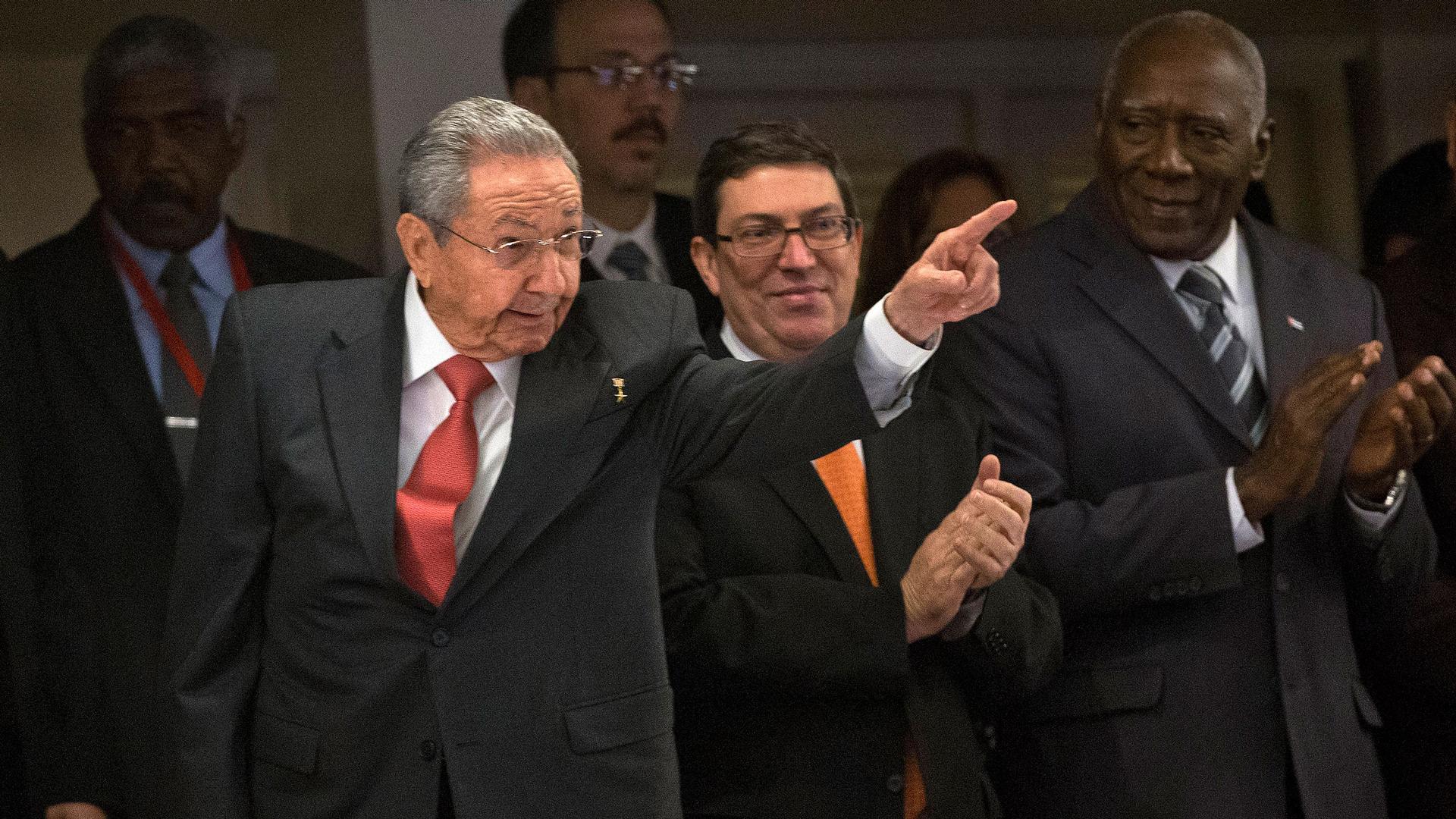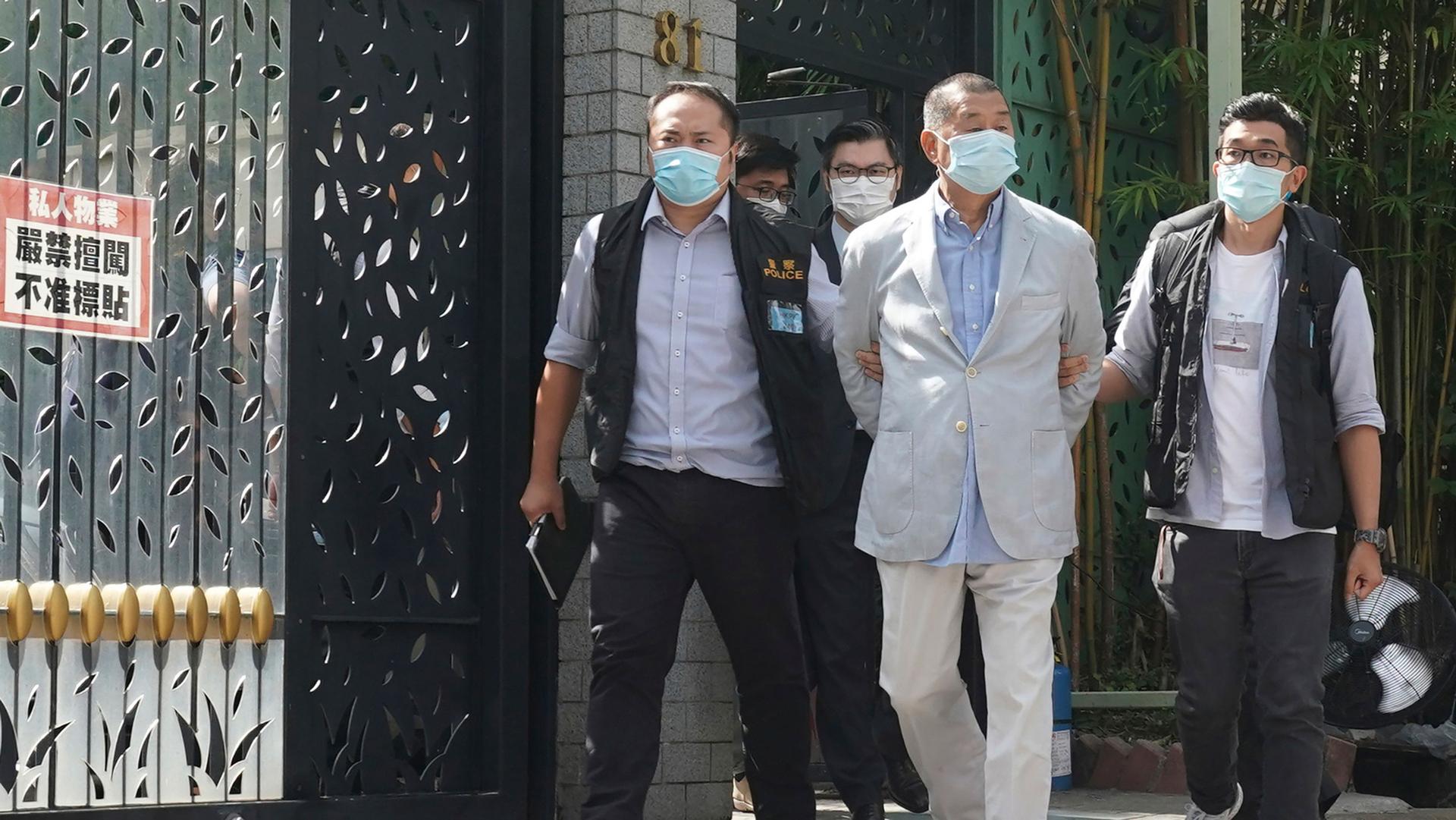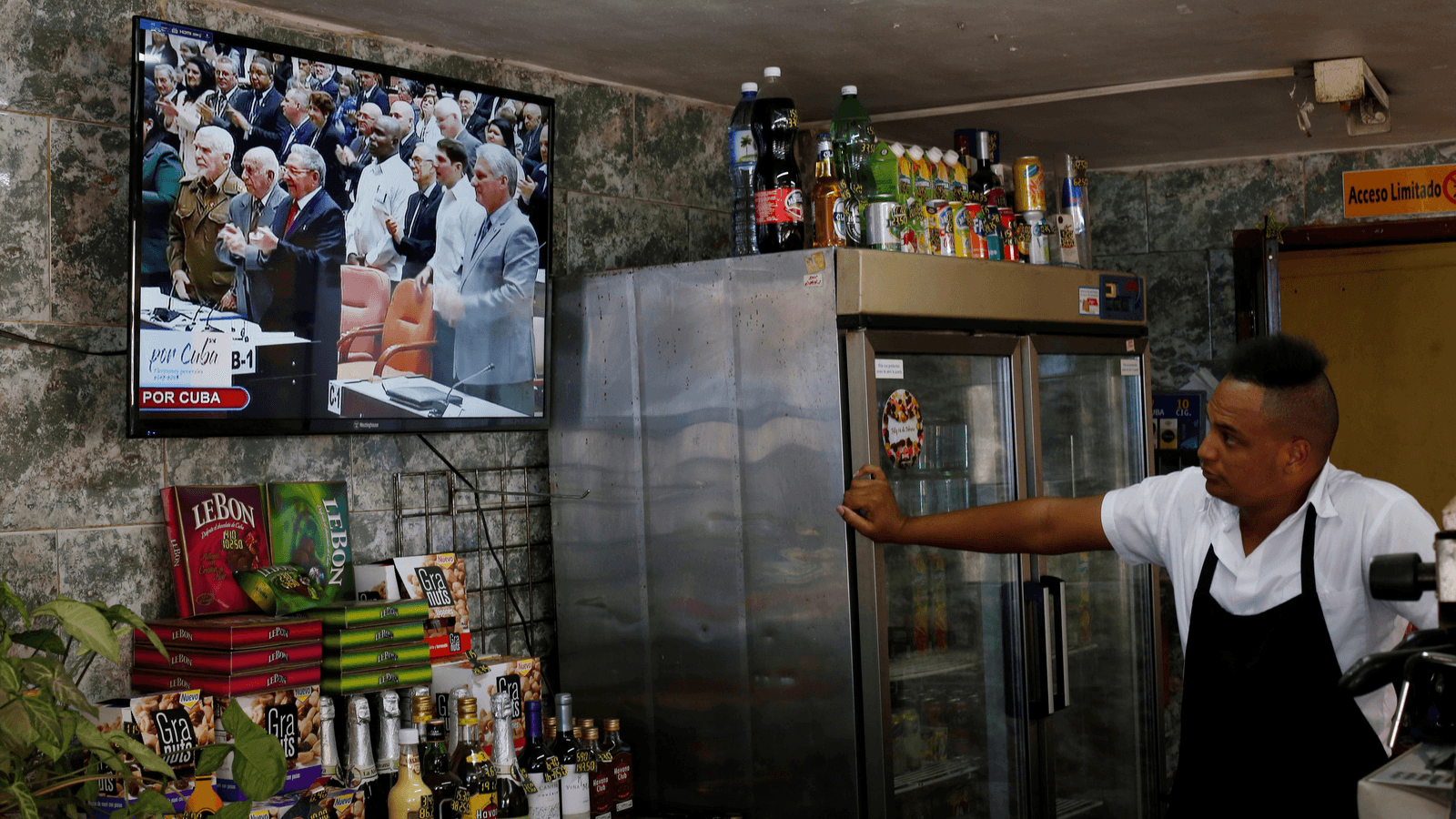Raul Castro
A retiring Castro to bring younger face to Cuba’s communists
Six years after the death of Fidel Castro, his brother and fellow leader of the island’s 1959 revolution, Raúl Castro, is being watched to see if he fulfills his commitment to give up the reins of the only political organization permitted in the country of 11 million people.
We want to hear your feedback so we can keep improving our website, theworld.org. Please fill out this quick survey and let us know your thoughts (your answers will be anonymous). Thanks for your time!
Freedom of the press ‘rattled’ Raúl Castro, causing him to answer a question with a lie
In Cuba, basic aspects of democracy as they exist in the US are rarely seen. So when the communist leader was faced with a free press questioning him about political prisoners on the island, he just said there were none.
Cuban cooperatives present a new economic model
Over the last few years, the Cuban government has been experimenting with turning state enterprises into cooperatives and letting the workers own and run them. They’re seen by some as a way of opening the country up to capitalism and privatization while maintaining some of the revolution’s collectivist ideals. And so far, Cubans seem to like them.
No cigar just yet: Many obstacles remain before complete normalization with Cuba
President Barack Obama’s December 17 announcement that he would begin normalizing relations with Cuba sparked hot debate on both sides of the Florida Strait. It also began a political process that won’t end until a highly fractious Congress can agree on new legislation, not likely to happen any time soon. Among other obstacles is the long-questioned human rights record of the Castro regime. Independent watchdog organization Freedom House says Cuba falls just shy of its “worst of the worst list” for denying its citizens political rights and civil liberties.
Subscribe to The World’s Latest Edition podcast for free using your favorite podcast player:


